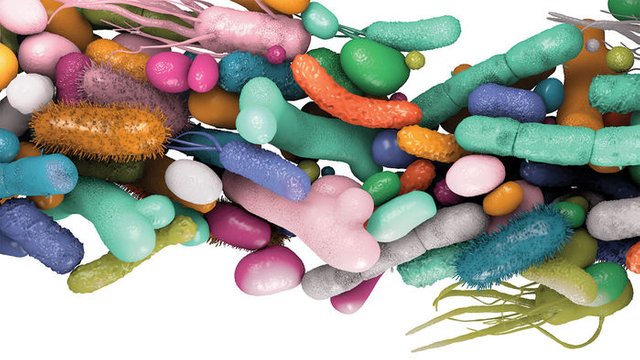Of all the many ways the teeming ecosystem of microbes in a person’s gut and other tissues might affect health, its potential influences on the brain may be the most provocative. Now, a study of two large groups of Europeans has found several species of gut bacteria are missing in people with depression. The researchers can’t say whether the absence is a cause or an effect of the illness, but they showed that many gut bacteria could make substances that affect nerve cell function—and maybe mood.
“It’s the first real stab at tracking how” a microbe’s chemicals might affect mood in humans, says John Cryan, a neuroscientist at University College Cork in Ireland who has been one of the most vocal proponents of a microbiome-brain connection. The study “really pushes the field from where it’s been” with small studies of depressed people or animal experiments. Interventions based on the gut microbiome are now under investigation: The University of Basel in Switzerland, for example, is planning a trial of fecal transplants, which can restore or alter the gut microbiome, in depressed people.
Several studies in mice had indicated that gut microbes can affect behavior, and small studies of people suggested this microbial repertoire is altered in depression. To test the link in a larger group, Jeroen Raes, a microbiologist at the Catholic University of Leuven in Belgium, and his colleagues took a closer look at 1054 Belgians they had recruited to assess a “normal” microbiome. Some in the group—173 in total—had been diagnosed with depression or had done poorly on a quality of life survey, and the team compared their microbiomes with those other participants. Two kinds of microbes, Coprococcus and Dialister, were missing from the microbiomes of the depressed subjects, but not from those with a high quality of life. The finding held up when the researchers allowed for factors such as age, sex, or antidepressant use, all of which influence the microbiome, the team reports today in Nature Microbiology. They also found the depressed people had an increase in bacteria implicated in Crohn disease, suggesting inflammation may be at fault.
Microbiome results in one population often don’t hold up in another. But when the team looked at data from another group—1064 Dutch people whose microbiomes had also been sampled—they found the same two species were missing among those who were depressed, and they were also missing in seven subjects suffering from severe clinical depression. The data don’t prove causality, Raes acknowledges, but they are “an independent observation backed by three [groups of people].”
Looking for something that could link microbes to mood, Raes and his colleagues compiled a list of 56 substances important for proper nervous system function that gut microbes either produce or break down. They found, for example, that Coprococcus seems to have a pathway related to dopamine, a key brain signal involved in depression, although they have no evidence how this might protect against depression. The same microbe also makes an anti-inflammatory substance called butyrate, and increased inflammation is implicated in depression.
Linking the absence of the bacteria to depression “makes sense physiologically,” says Sara Campbell, a physiologist at Rutgers University in New Brunswick, New Jersey. Still, no one knows how microbial compounds made in the gut might influence the brain. One possible channel is the vagus nerve, which links the gut and brain.
Resolving the microbiome-brain connection “might lead to novel therapies,” Raes suggests. Indeed, some physicians and companies are already exploring typical probiotics—oral bacterial supplements—for depression, although they don’t normally include the missing gut microbes identified in the new study. Clinical neuroscientist André Schmidt of the University of Basel has started a clinical trial in which his team is assessing the mental health and microbiota of 40 depressed people before and after they receive a single fecal transplant.
He and other advocates agree that solidifying any depression-microbiome connection will take many more studies. Still, Sven Pettersson, an experimental biologist at the Karolinska Institute in Stockholm who was among the first to suggest such a link, calls the new findings “a massive signal to the clinical community to consider microbiome profiling in their [mental health] patients.”
Source
Plagiarism is the copying & pasting of others work without giving credit to the original author or artist. Plagiarized posts are considered spam.
Spam is discouraged by the community, and may result in action from the cheetah bot.
More information and tips on sharing content.
If you believe this comment is in error, please contact us in #disputes on Discord
Downvoting a post can decrease pending rewards and make it less visible. Common reasons:
Submit
Hi! I am a robot. I just upvoted you! I found similar content that readers might be interested in:
https://www.sciencemag.org/news/2019/02/evidence-mounts-gut-bacteria-can-influence-mood-prevent-depression
Downvoting a post can decrease pending rewards and make it less visible. Common reasons:
Submit